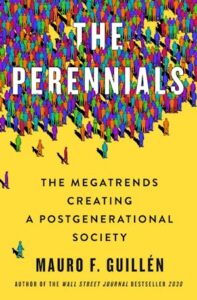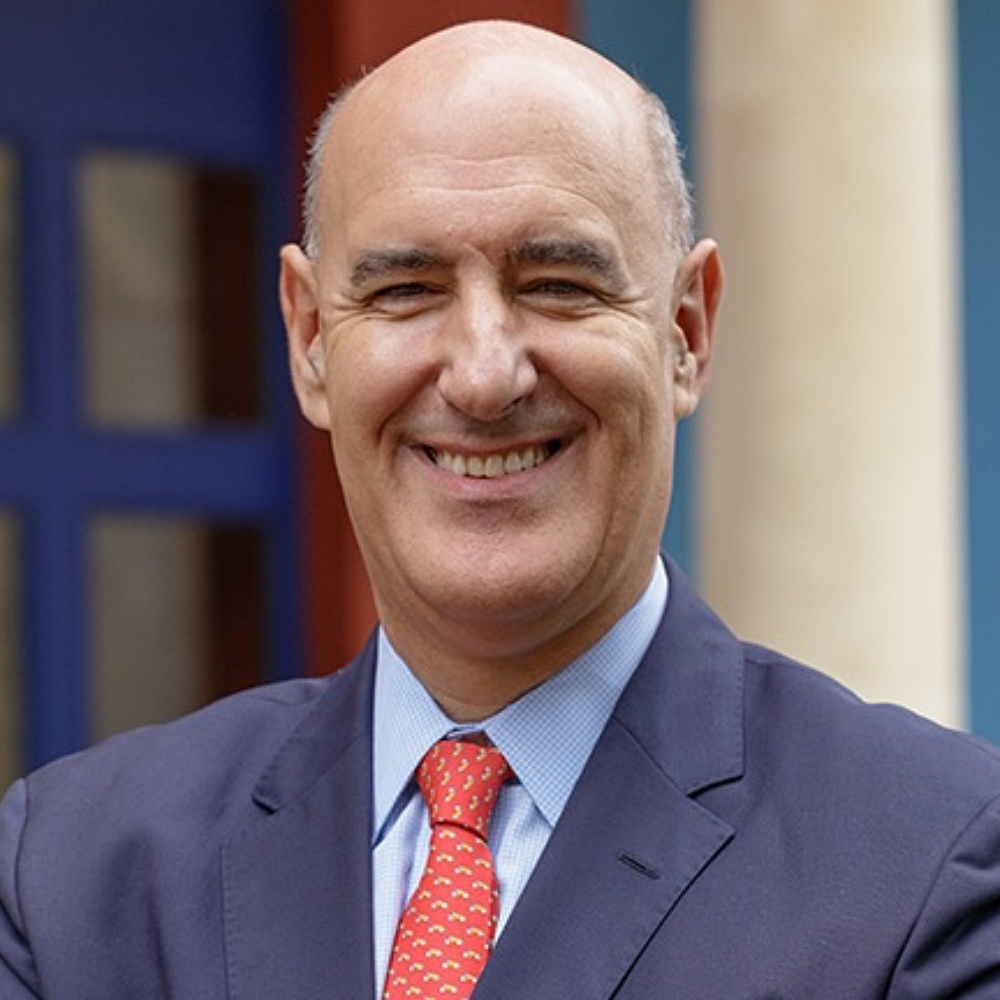Podcast: Play in new window | Download

In what might seem to be the least likely workplace imaginable to implement this, automaker BMW now has five generations of people working under one roof in their factories collaborating & contributing their unique skills and perspectives.
If, by chance, you’re wondering how older workers could possibly keep up with the rigorous demands of building cars on an assembly line, you may be missing one of the most important societal trends of the moment: people today aren’t just living longer than ever, they’re remaining healthy & capable of working many years beyond the traditional retirement age of 65.
For the first time in human history, eight defined generations now live together side by side, from Alphas to the Greatest Generation by way of Boomers, Gen-X, Millennials & more. And, until now, these generational labels have only served to pigeonhole people & define their presumed limitations.
 In his new book, “The Perennials, The Megatrends Creating A Postgenerational Society,” Wharton Business School management professor & assistant dean, Mauro Guillen, argues that the idea of a linear life of compartmentalized stages (i.e. from birth to childhood to adulthood to retirement) is no longer appropriate, & that concepts like retirement prove to do more harm than good.
In his new book, “The Perennials, The Megatrends Creating A Postgenerational Society,” Wharton Business School management professor & assistant dean, Mauro Guillen, argues that the idea of a linear life of compartmentalized stages (i.e. from birth to childhood to adulthood to retirement) is no longer appropriate, & that concepts like retirement prove to do more harm than good.
He’s proposing an alternative: a post-generational workforce of “perennials,” where older people are encouraged to work well into their 70s alongside their younger colleagues. Guillen rejects the idea that older people are too set in their ways to adapt, & points to evidence showing that, when given the opportunity, they can use their experience & maturity to add value to any business wise enough to hold on to them.
Guiilen stresses that educational institutions should also be willing to embrace older students, since there’s a necessity for continual re-skilling to accommodate new technologies & trends. And, older people who remain in the workforce offer huge marketing opportunities for companies looking to expand their product lines in everything from cosmetics to cars.
He also acknowledges that all this will require a new mindset – & enlightened leadership – in our workplaces. Younger people must be shown the upsides of accepting older people at work even while they themselves grapple with the idea of lifelong learning. Equally, older people need to accept that change, both technological & social, will be a constant in their lives. This won’t be easy, but the upside is that many more people will have the opportunity to lead lives that are personally rewarding & socially fulfilling.
How can all this work? That’s the core focus of this podcast. This is also Guillen’s second time being a guest – three years ago he joined us to discuss his Wall Street Journal Bestseller, 2030: How Today’s Biggest Trends Will Collide and Reshape the Future of Everything.




